Table of Contents
- Shared guest post spreadsheets often result in low-quality, devalued backlinks due to Google’s SpamBrain and manual penalties.
- Guest blogging works only when sites are vetted for traffic, authority, and topic relevance—not just inclusion on a list.
- MSN and similar syndication sites offer minimal link value unless tied to high-profile, relevant content sections.
- Prioritize high-quality, keyword-driven guest pitches over list-based outreach; treat it like SEO content pitching.
- Digital PR remains the best strategy for authoritative, lasting backlinks that align with Google’s ranking systems.
I’m not against guest posting. I have an entire post on guest blogging and how to do it effectively.
We also have a guest post list post, for which I weeded out over 800 sites to create a custom list based on several quality factors.
I’m against those shared Google Sheets that get passed around the web selling backlinks at extraordinary rates, like these:
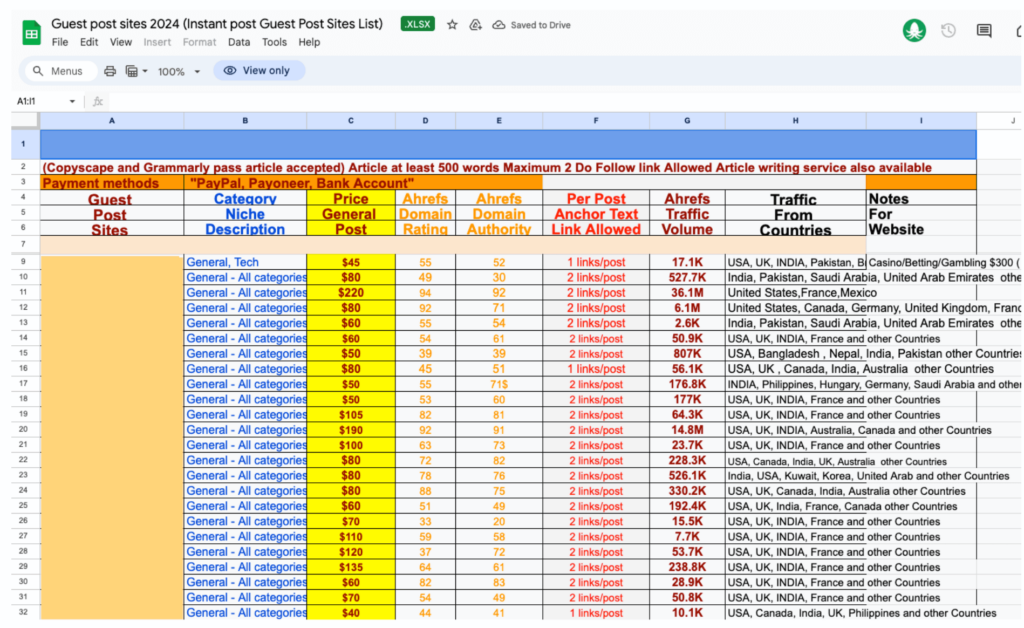
If you do it right, getting featured on a third-party site can help build links, especially for new sites.
But since I receive these kinds of lists daily, it was worth writing a post about their value (or lack thereof).

Helpful Content Crushed Most Guest Blogging Sites
The problem with a list is that it gets outdated quickly.
Take any chunk of pages on a list like the one pictured above. You’ll find traffic metrics have dropped in previous Helpful Content updates or the recent March 2024 ranking system update.
For example, here are the organic traffic metrics for the first five sites on the list.
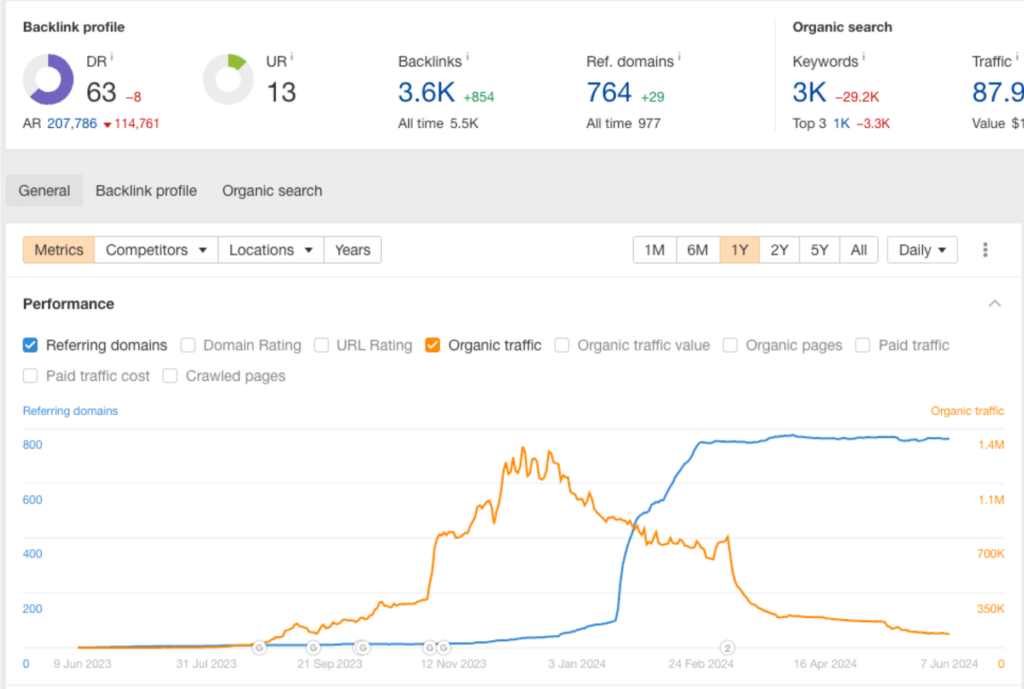
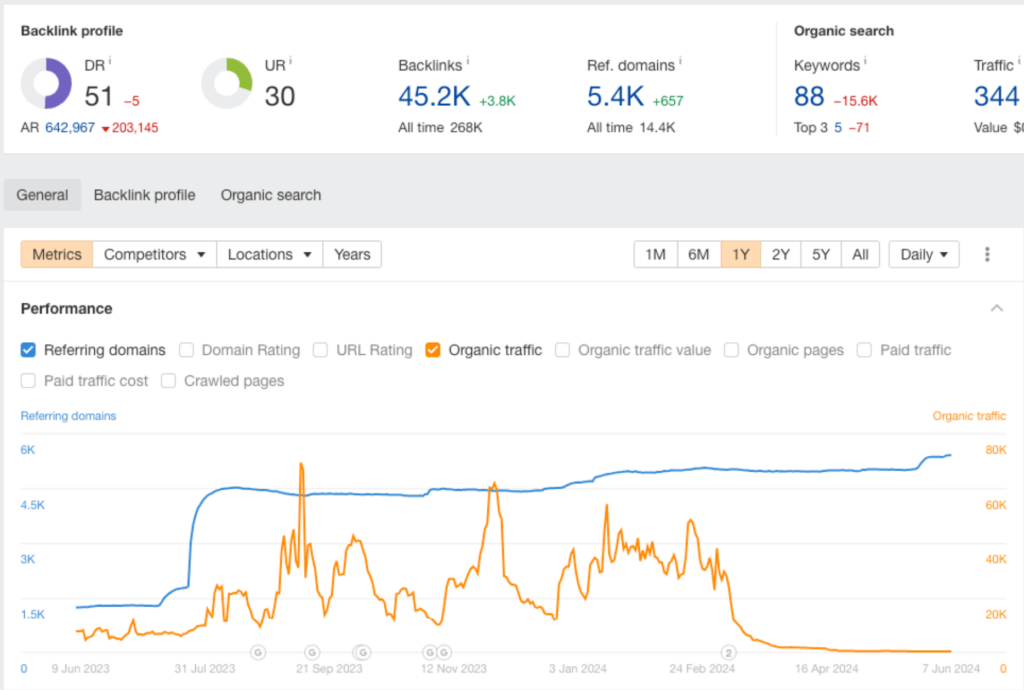
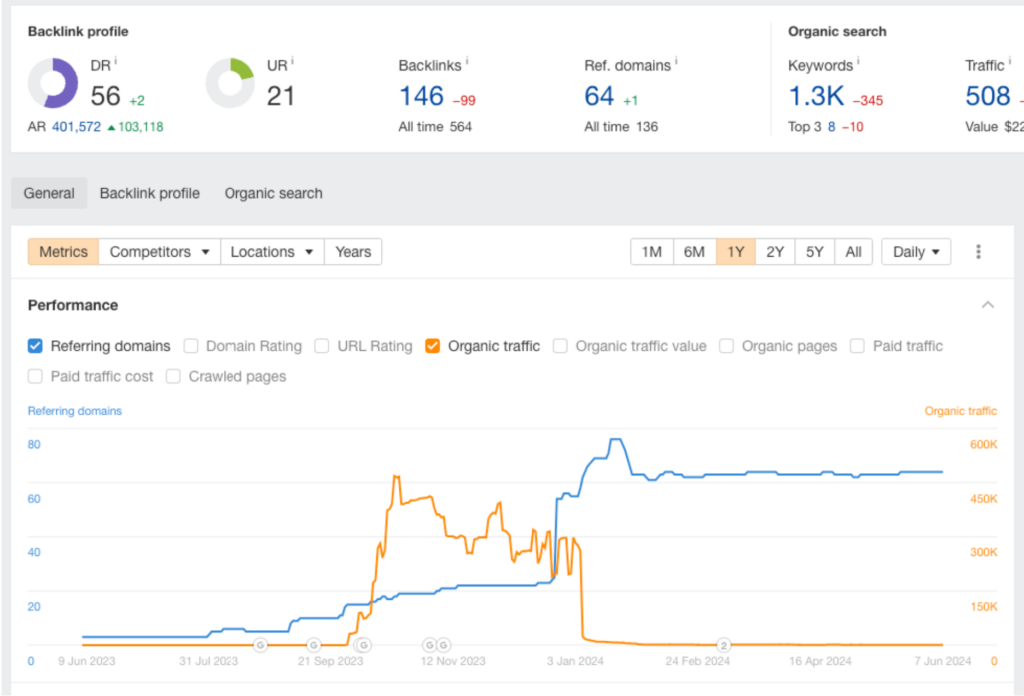
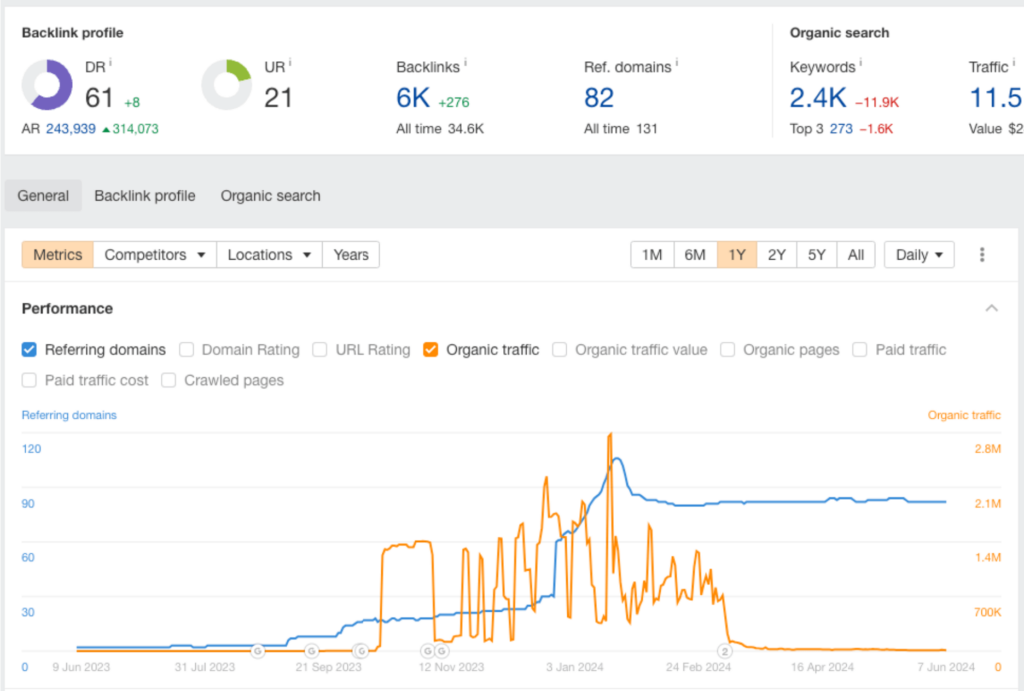
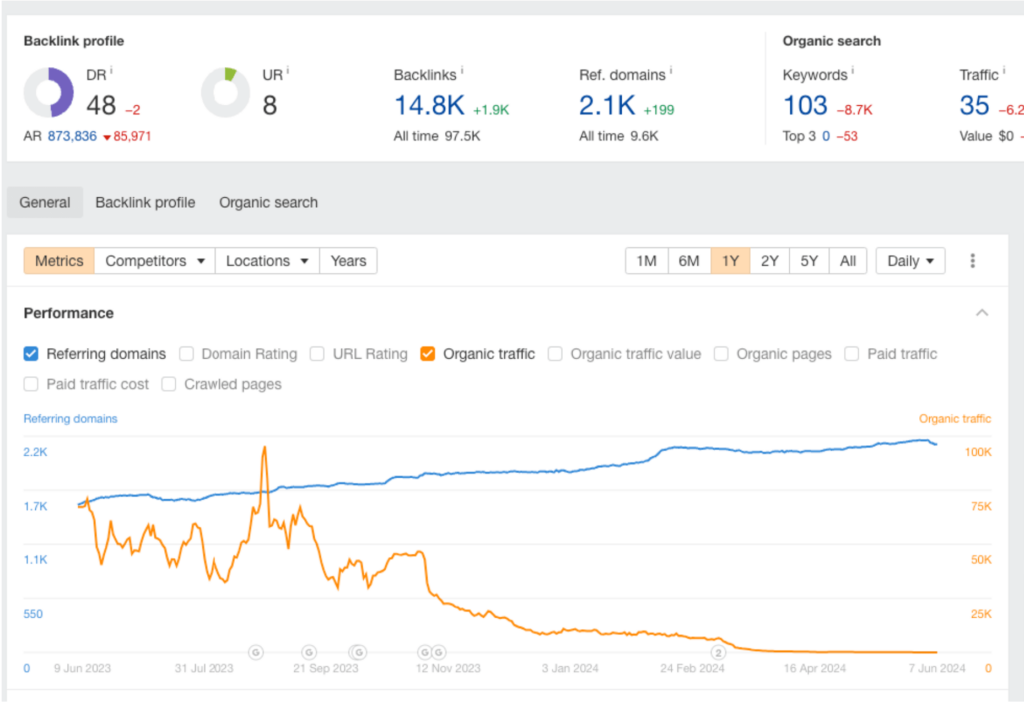
See the trend?
Google is out to get low-quality sites whose only goal is to profit from selling links.
In 2022, Google announced that it was using an AI-based spam-prevention system called SpamBrain to detect sites buying and selling links.
Not Every Placement Is What It Seems
One site that I get guest-posting pitch emails about all the time is MSN.
This made me dig deeper into this because I’ve also seen it on various spreadsheets.
When you look into the kinds of placements you can get on MSN, you find that they are essentially sub-sections of a site.
MSN used to be a news site. Now, it is essentially just a syndication platform.
You can see that they dipped during some of the previous Helpful Content updates in 2023.
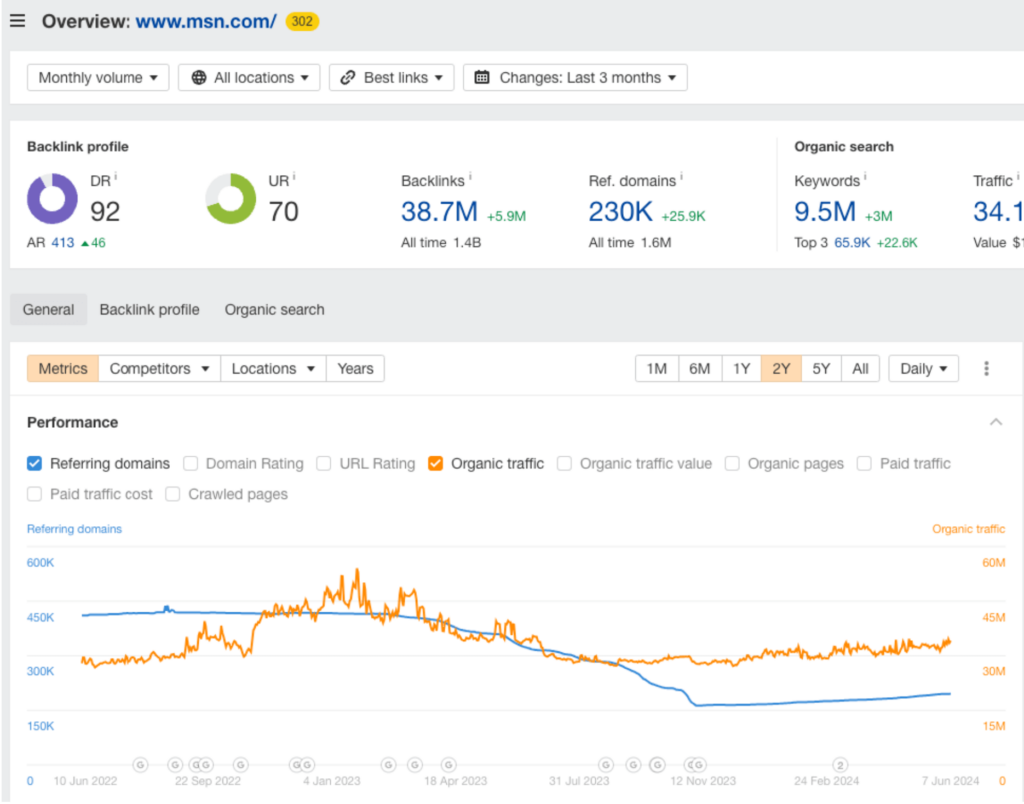
That said, they still bring over 40 Million Organic Visits per year.
So why is getting a link from them potentially worthless?
You’ll notice it’s broken up into profiles when you dig into MSN. Anyone can create a profile if they follow MSN’s guidelines.
Based on what SEOs have learned from the Google leak, Google may value links from highly clicked site sections.
Furthermore, Google penalizes verticals that make less sense on a site.
For example, Google penalized coupon sections from top-tier sites like Forbes as site reputation abuse.
So, if the profile is well-known, like Newsweek or The Hill, and posts relevant news, you probably get some value from the link.
But the link likely isn’t valuable if a spammy link builder sets up a random profile that only lists random guest posts.
It may even be subject to a penalty at some point.
Google Most Likely Manually Devalues Sites
Another reason to avoid these sites is that there is evidence that Google has taken action to devalue sites manually.
I saw it in action.
I once had a conversation thread on LinkedIn, and someone shared a link to a Google Sheet of Guest Post Sites.
Google rep John Mueller jumped in (he wasn’t tagged anywhere) and just said, “Thanks for the link.”
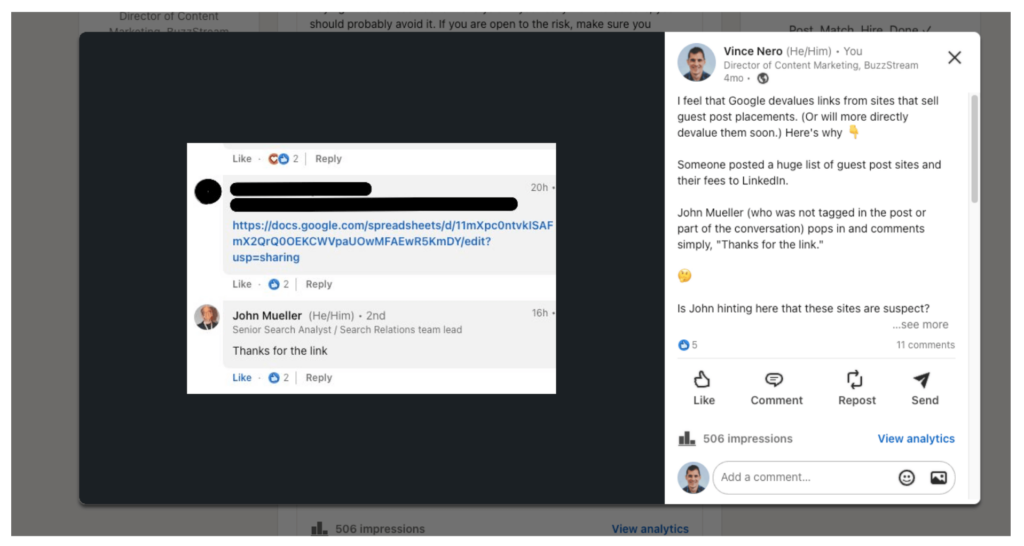
This tells me that he would devalue all the links from those sites.
Of course, there’s no real way to tell; he never responded when I asked him about it.
However, the evidence is backed up by Google’s link spam guidelines, and there is no reason they wouldn’t want to devalue links from sites that sell placements for ranking purposes.
You Don’t Need As Many Links As You Think
I wrote an entire post explaining why you may not need as many links as you think.
Many evaluate their link building needs based on competitors. However, an analysis of most sites revealed that they have far fewer quality links than what appears on the surface.
For example, if I am a mattress site and went into link building thinking that I needed to compete with Casper, on the surface, it would appear that I need over 35K links from referring domains to stay competitive.
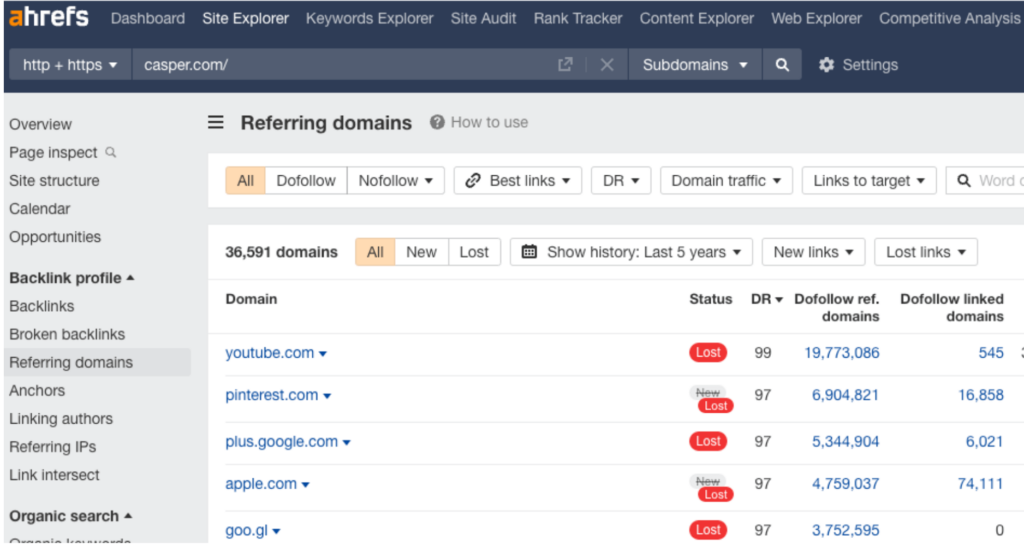
But when I run a quality check and filter out low-DR and low-traffic sites using Ahrefs’ Best Links feature, that number drops to 2,632.
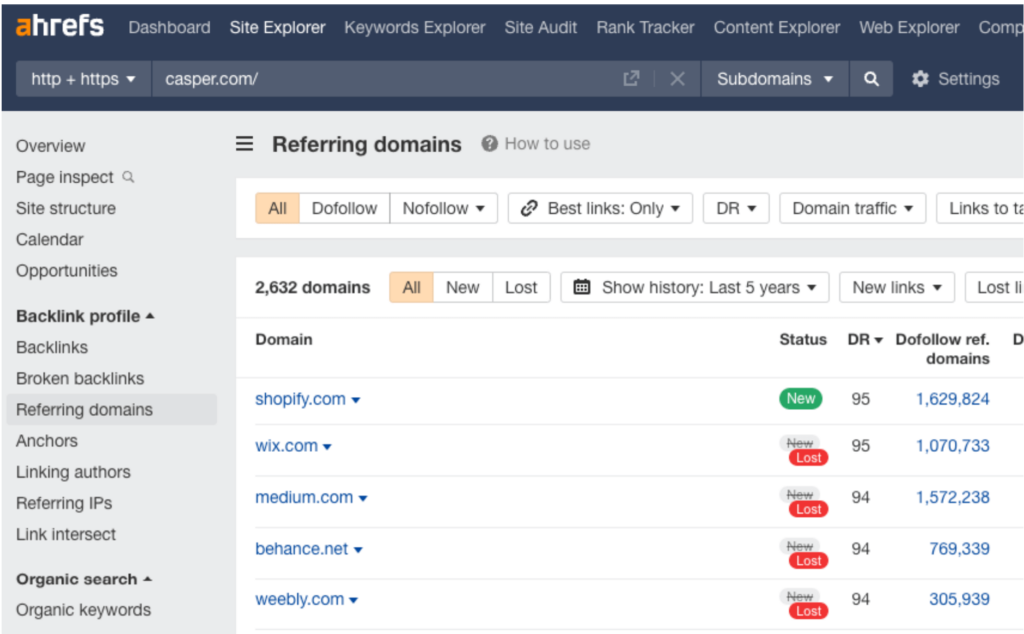
Shifting your focus from the quantity to the quality of links will help you avoid succumbing to lists like this one.
So Why Do So Many Guest Post Spreadsheets Exist?
Why are so many people using spreadsheets like this to purchase link placements if they don’t work? Why do so many lists exist?
Some of the sites on these lists may have worked sporadically in the past, so people kept running with it.
Others who don’t necessarily have the time or knowledge to research SEO more deeply were sold on the quick shortcut to links.
Either way, they are no longer reliable based on Google’s data and actions in the past months.
What’s the Better Strategy?
Here’s an entire video I did on the better guest blogging strategy. It involves providing keywords, traffic value, and competitor insights to convince a site to accept your guest post.
Essentially, you pitch like an SEO content writing agency or freelancer.

Here is the condensed version below:
1. Find Sites Where You Want to Appear
First, you find sites contextually relevant to your product and not a direct competitor.
What I like about the strategy is that you’re not only beholden to these sites that accept guest posts.
2. Identify Keywords That Benefit Your Target Site
You want to provide so much value to your target that it’s hard for them to say no.
You find keywords for which your target site should rank but don’t. Look at the SERPs and competitors.
If I were to pitch BuzzStream, I would look at keywords that are valuable to BuzzStream. Are there keywords around link building or digital PR that are lacking?
3. Pitch the Keyword Metrics and Value
Aside from pitching the post idea, clarify why the keyword is valuable. Use search volume, click metrics, and traffic value to support your claims.
Ahrefs has all of these metrics for keywords.
For example, here are some metrics for “digital marketing trends.”

As I said, you don’t need to contact sites that accept guest posts. If you could do this correctly and find some people who may be low in writers, they may be looking for quality work and don’t have the time to do it.
Then, you add your link to that post naturally.
Or Consider Digital PR
Digital PR is the best way to get high-authority links. As we saw previously with Casper, a few high-authority links can significantly impact a site’s authority.
It is something that Google itself has lauded as quality content.
I love some of the things I see from digital pr, it’s a shame it often gets bucketed with the spammy kind of link building. It’s just as critical as tech SEO, probably more so in many cases.
— John 🧀 … 🧀 (@JohnMu) January 23, 2021
Many of my recent takeaways from the Google leak have all pointed to Google valuing high-authority links from news sites over random guest post sites.
We’ve covered numerous successful digital PR examples that have proven to be repeatable strategies across various industries and the essential tools to run a successful campaign.

 End-to-end outreach workflow
End-to-end outreach workflow



 Check out the BuzzStream Podcast
Check out the BuzzStream Podcast







